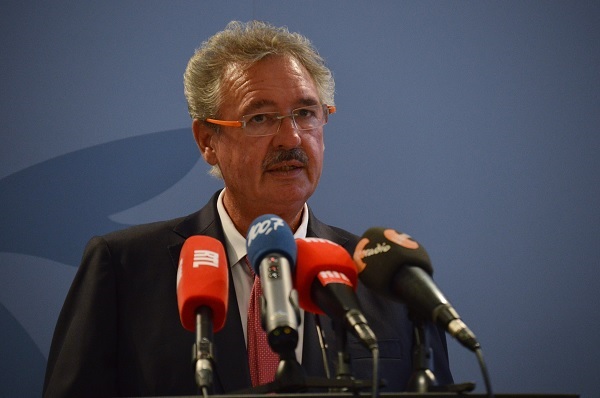
As a European Commission press conference was under way in Calais to discuss a Europe-wide approach to the current migrants crisis, Luxembourg Minister for Foreign and European Affairs, Jean Asselborn, today presented the figures concerning refugees and asylum seekers here in the Grand Duchy.
Increasing pressure to confront the migration crisis in Europe has come at a significant time for the Grand Duchy, which currently holds the Presidency of the Council of the European Union. Minister Asselborn's broaching of the topic followed a joint call in a statement made yesterday by France, Germany and the UK for the "Luxembourg Presidency to organise a special meeting of justice and interior ministers within the next two weeks" in order to begin to develop actual solutions to this rising crisis.
Desperate attempts by refugees fleeing violence and persecution to reach EU borders have culminated in a veritable humanitarian crisis. Several tragedies have taken place since the beginning of the year, most recently 500 migrants drowning in over-crowded boats in Libya on 27 August 2015, and the discovery of 71 deceased Syrian refugees in an abandoned lorry in Austria.
Both French Prime Minister François Hollande in Calais and Minister of Foreign and European Affairs Jean Asselborn in Luxembourg City today emphasised the need for an approach to the crisis which involves "solidarity" and "responsibility" among EU Member States. Both politicians alluded to the increasing constraints on certain countries such as Italy and Greece, who represent the first regions to establish so-called migrant 'hotspots', run by the EU to accelerate the registration and handling of refugees.
Minister Asselborn also implied his criticism for countries such as Hungary which have constructed a barbed wire barrier around their border to halt the influx of refugees, stating that this was not in accordance with international agreements such as the Geneva convention which demands the protection of civilians in and around a war-zone. He continued by differentiating between migrants fleeing war zones and abuses of human rights and economic migrants fleeing poverty.
According to EU border agency Frontex, between January and July 2015 around 102,000 migrants arrived in the European Union via eastern neighbouring countries such as Kosovo, Serbia and Bosnia. Minister Asselborn reported on Luxembourg's own situation with regards to refugees from these regions, stating that the Grand Duchy had returned 319 asylum seekers to the Balkans in summer 2015, of which 172 were adults and 147 were minors. Of these 319, 36 adults and 29 minors chose to voluntarily return, whilst 41 adults and 37 minors were forced to leave.
Every European country appears to be feeling the waves of the migration crisis, with certain countries such as Sweden, which has taken in a significant amount of migrants, experiencing the development of anti-immigration parties and sentiments as a result of the large influx of refugees.
First Vice-President of the EU Commission Frans Timmermans stated at the Calais press conference that developing an approach to the problem had been waylaid by the reticence of certain Member States to follow the distribution and relocation system, but that now "no one can avoid doing their part" and that action was "moving in the right direction".
Also speaking in Calais, Migration and Home Affairs Commissioner Dimitris Avramopoulos referred to the €5.2 million allocated to the port town by the emergency assistance funding sector of the Asylum, Migration and Integration Fund (AMIF) of the European Commission.
"This emergency funding will help reduce the high pressure in Calais and offer humanitarian assistance to migrants living in rough conditions," said Avramopoulos. "But we need to do more than respond to immediate emergencies: we need to advance on the concrete proposals the Commission put on the table. In this respect, I welcome the Luxembourgish presidency’s decision to hold an extraordinary Justice and Home Affairs Council on 14 September to discuss next measures that need to be taken and implemented to address the unfolding migration crisis jointly."
Photo by Sarah Graham (Minister for Foreign and European Affairs, Jean Asselborn)








